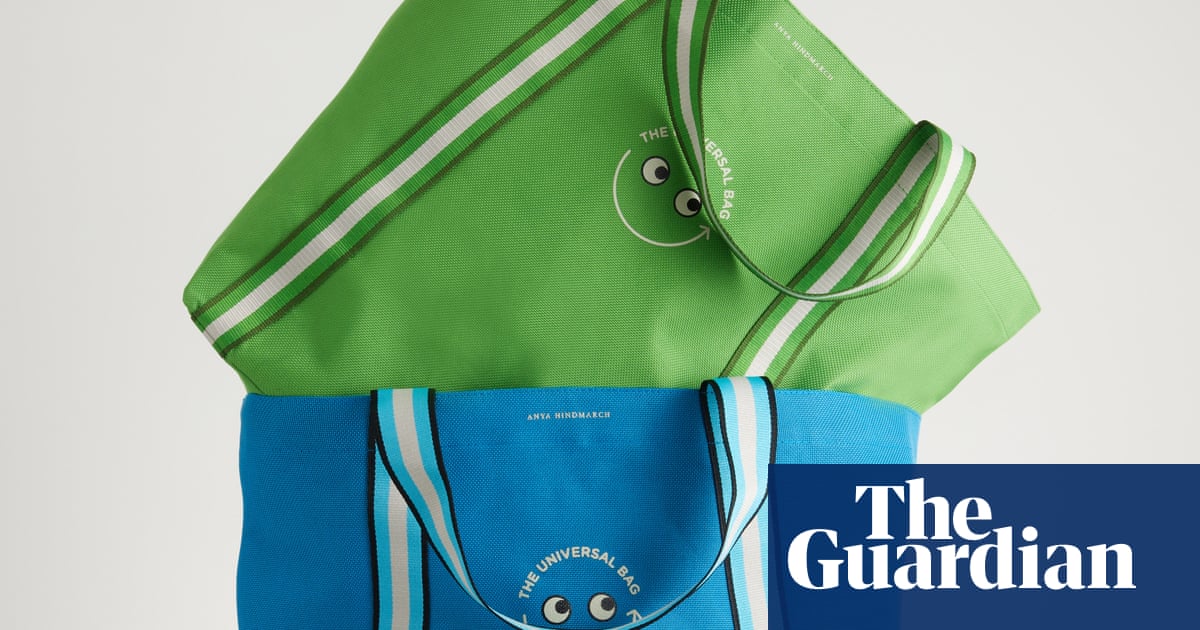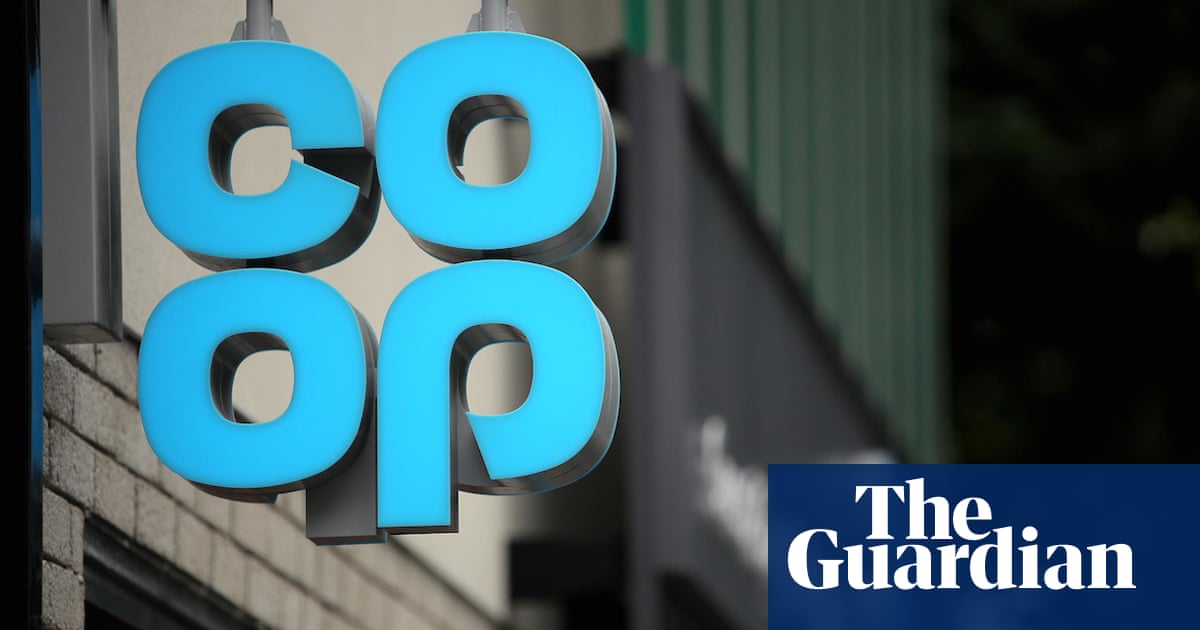
She first made reusable shopping bags chic 16 years ago, now Anya Hindmarch is teaming up with the Co-op and Asda in the latest step of a plan to put fully recyclable plastic bags into every supermarket.
Asda will begin stocking the bag – putting its bright green spin on the large tote which features a smiley face and stripy straps – in 300 stores from the end of February and the Co-op’s turquoise version will appear next month.
The accessories designer’s two latest partnerships with retailers follow from deals with Sainsbury’s, Waitrose and Selfridges in the UK before Christmas, as well as CitySuper in Hong Kong, with each brand stocking Hindmarch’s “universal bag” design in their signature colour.
Billed as “the next generation reusable shopping bag”, they can be reused for up to a decade.
The designs are a response to evidence that, while distribution of single use plastic bags dived 95% in the main supermarkets between 2015 and 2020, nearly half a billion were sold from 2020 to 2021 – five years after a government levy on carrier bags was introduced.
The stronger and supposedly reusable supermarket “bag for life” has also not provided the environmental solution hoped for. A number of food retailers, including Co-op and Morrisons, pulled the 10p bags from their stores in 2021 after learning that most ended up in the bin, with the average household getting through 50 a year.
Some more expensive bags are made from a mixture of materials, such as hemp and plastic, which are difficult to recycle.
“We can do it better,” Hindmarch, whose designs are favoured by The Princess of Wales and is a friend of Samantha Cameron, said. “There are something like 8bn tonnes of plastic on the planet and that is really shocking when you think about it.
“You have got to keep pushing and talking about it. People need to be aware that you can’t carry on buying something and using it for 10 minutes and chucking it in landfill.
“There is nothing better than using the bag you already have,” she says but the “universal bag” is designed to be something desirable, useful and durable enough to be reused multiple times – with the intention that it can last 10 years.
In contrast to her £5 cotton “I’m not a plastic bag” tote – of which 80,000 were sold for charity in 12 hours back in 2007 – the new £10 bags are made entirely from recycled plastic.
The bags are manufactured in China and recycled in Britain, with users able to fold unwanted or damaged bags into a pocket inside the bag and post them off for reprocessing.
They won’t be made into new bags, for now at least, but they can be made into other plastic products such as garden furniture.
The bag is made from plastic because Hindmarch says many people want a waterproof and leak-proof bag that “fits the purpose of the weekly shop. You can put it down on the street while waiting for the bus,” she says.
She says that bags will be recycled locally and ultimately could be made closer to the markets where they are used. She admits: “It’s not perfect, we are not perfect but we are trying.”
Hindmarch says she has experimented with ways to make her own designer collections more sustainable including the Return to Nature line which uses fully compostable leather.
Hindmarch, who founded her business in London in 1987 and is known for her quirky designs linking upmarket accessories with everyday brands, says there are “many more [partnerships] in the pipeline”, amid discussions with a number of supermarkets and other retailers in the UK and elsewhere.
“We are in talks with lots of people across lots of different countries. It’s a really big project and it’s exciting the impact it is having. It is not only about directly saving materials from landfill but the conversations we are having and trying to find a better solution. It is about everyone coming together and giving their best knowledge into this project.”












